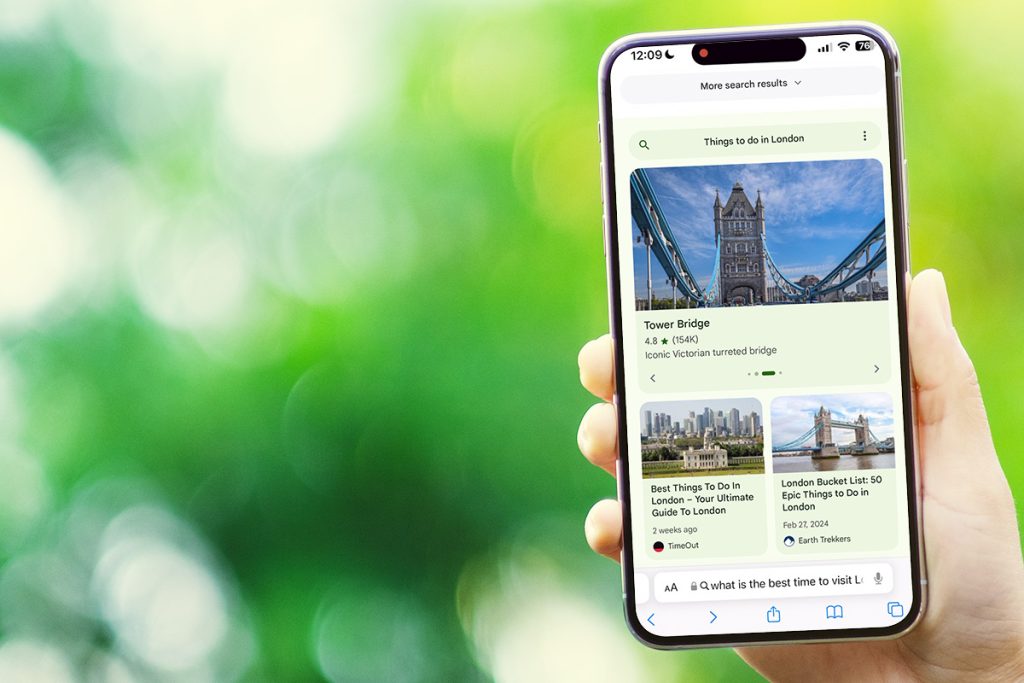Google’s new AI-driven search capabilities are shaking up the traditional search landscape and presenting both opportunities and challenges for travel and tourism brands. The new AI Overview feature offers detailed summaries for complex travel queries, providing suggested itineraries, travel tips, and multimedia content. This represents a significant shift from traditional search listings and requires brands to adapt to this new format. However, these changes are still in the early stages of rollout, with AI-generated answers not yet available for all queries or countries.
The new AI-powered search results are particularly effective for purely informational queries, such as “best time to visit” type questions. While the results are more rich and detailed on mobile devices compared to desktop, the sheer complexity of the search results landscape can be overwhelming for both travelers and industry professionals. Google is now pulling results from a variety of media sources and presenting them in different formats within search results, which can make it challenging for brands to stand out in this competitive environment.
In this new era of AI-powered search, official tourism board websites may become less relevant, as Google prioritizes sites like Reddit, Quora, and Tripadvisor forums for travel information queries. This shift highlights the importance of trusted reader forums in providing up-to-date and relevant information to users. Google’s ability to contextualize search results based on location further enhances the user experience and increases the importance of YouTube videos in the search environment.
The rise of Reddit as a source of competition for travel information queries is a significant development in the search landscape, with brands facing the challenge of standing out in this increasingly crowded space. While ads on Google will continue to play a role, the impact of AI-generated answers on ad inventory remains uncertain. Despite these challenges, the new AI-driven search capabilities present opportunities for travel and tourism brands to better understand and master this evolving search landscape. By adapting to the changing search environment and leveraging AI technologies, brands can stay ahead of the competition and provide valuable, engaging content to users.
Overall, Google’s new AI-powered search results represent a mix of usefulness, uselessness, and an overwhelming array of formats. While the technology continues to evolve, brands in the travel and tourism industry must adapt to these changes and find ways to differentiate themselves in this dynamic search environment. By focusing on providing relevant, high-quality content and leveraging emerging technologies, such as AI and video snippets, brands can enhance their visibility and engagement in Google search results. As the search landscape continues to evolve, staying informed and proactive in leveraging these advancements will be crucial for the success of travel and tourism brands in the digital age.














